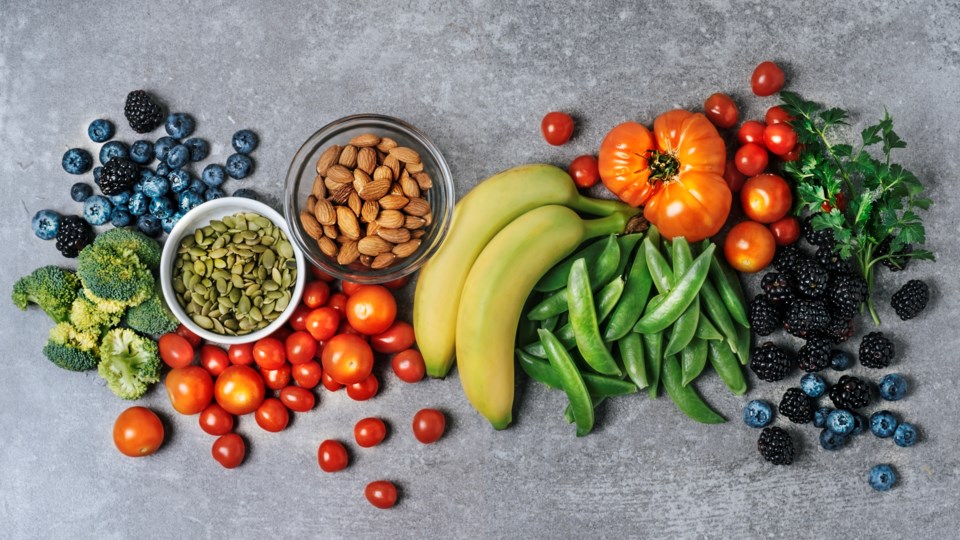Enzymes are very important to our overall health and wellbeing, playing a vital role in various physiological processes. They are crucial for digestion, nutrient absorption, detoxification, and immune system function. Enzymes are so crucial that we could not sustain life without them. Enzymes are produced by the body and present in many foods. Supplementation shouldn’t be necessary if we have a healthy balanced diet with whole foods and plenty of vegetables.
There are three main types of enzymes: digestive, metabolic, and food. Digestive enzymes break food down into simpler components, metabolic enzymes facilitate cellular functions and body processes, and food enzymes (which we get from raw foods) aid digestion and reduce the body’s enzyme-producing workload. Our lifestyle and dietary choices can either help or hinder enzyme activity, which influences our health outcomes.
In Dr. Hiromi Shinya’s book The Enzyme Factor, he focuses on the role of enzymes in digestive health to prevent toxin accumulation, leading to a healthier colon and therefore a healthier body. He also talks about the importance of an alkaline PH level in the body. An overly acidic body environment can lead to various health issues and chronic diseases. If we aim for an alkaline diet rich in vegetables and fruits to ensure a balanced pH level, this fosters the best environment for enzyme activity.
Dr, Shinya states that a healthy colon is essential for overall wellbeing, and improper diet and lifestyle choices can lead to a buildup of toxins in the colon, contributing to various diseases. He emphasizes that the modern diet, full with processed and cooked foods, significantly diminishes enzyme levels. Processed foods with no enzymes, or cooked foods with little active enzyme activity, leads to a greater reliance on the body’s enzyme reserves, which can result in enzyme depletion and subsequent health issues.
A diet with plenty of raw, enzyme-rich foods will augment the body’s enzyme supply. He particularly advocates for the consumption of fermented foods like miso and sauerkraut (as well as kefir, kombucha and kimchi), which are rich in enzymes and probiotics, contributing to a healthier gut flora.
Dr. Shinya introduces the Shinya Method, a comprehensive and preventative approach to health that focuses on diet, lifestyle, and medical practices to promote overall well-being and prevent disease, with a particular emphasis on enzyme health and digestive wellness. The Shinya Method aims to maintain optimal enzyme levels in the body, promote a balanced internal pH, and foster a healthy colon, thereby preventing a host of health issues. Here are his recommendations in a nutshell:
Consume enzyme-rich foods like fruits and raw vegetables, include fermented foods like miso, unpasteurized sauerkraut, kefir, kimchi, kombucha etc, which are high in enzymes and probiotics. Focus on eating more of an alkaline diet high in vegetables and certain fruits while limiting dairy and meat which tend to be more acidic. Avoid processed foods and overly cooked foods which are low in natural enzymes. Drink plenty of water (alkaline water if you can access it) to stay hydrated and help flush out toxins. Chew your food until you are drinking it. The longer you chew the more time your body has to release the correct enzymes in your saliva which supports digestion (as digestion starts in the mouth). Find an outlet to manage your stress, such as yoga, meditation and deep breathing etc. Get enough exercise as regular physical activity promotes circulation and overall health. Get enough quality sleep in order to allow the body to rest, repair, and rejuvenate. Avoid smoking and excessive alcohol as these substances negatively affect enzyme levels and overall health. Get regular check-ups to monitor overall health and detect any potential issues early, including regular colonoscopies to keep track of colon health. Choose mindfulness and positive thinking practices to help foster mental and emotional well-being.
I always support holistic approaches to health reclamation and health maintenance, as I feel this contributes to disease prevention and longevity. Thank you to Elizabeth Miller, who is an 89-year-old woman (and also my mother), for her dedication and interest in health and her continual research. She introduced me to the importance of enzymes in our diets.
Claire Nielsen is a health coach, author, public speaker and founder of www.elixirforlife.ca. The information provided in the above article is for educational purposes only and is not a substitute for professional health and medical advice. Please consult a doctor, health-care provider or mental health practitioner if you're seeking medical advice, diagnoses and/or treatment


